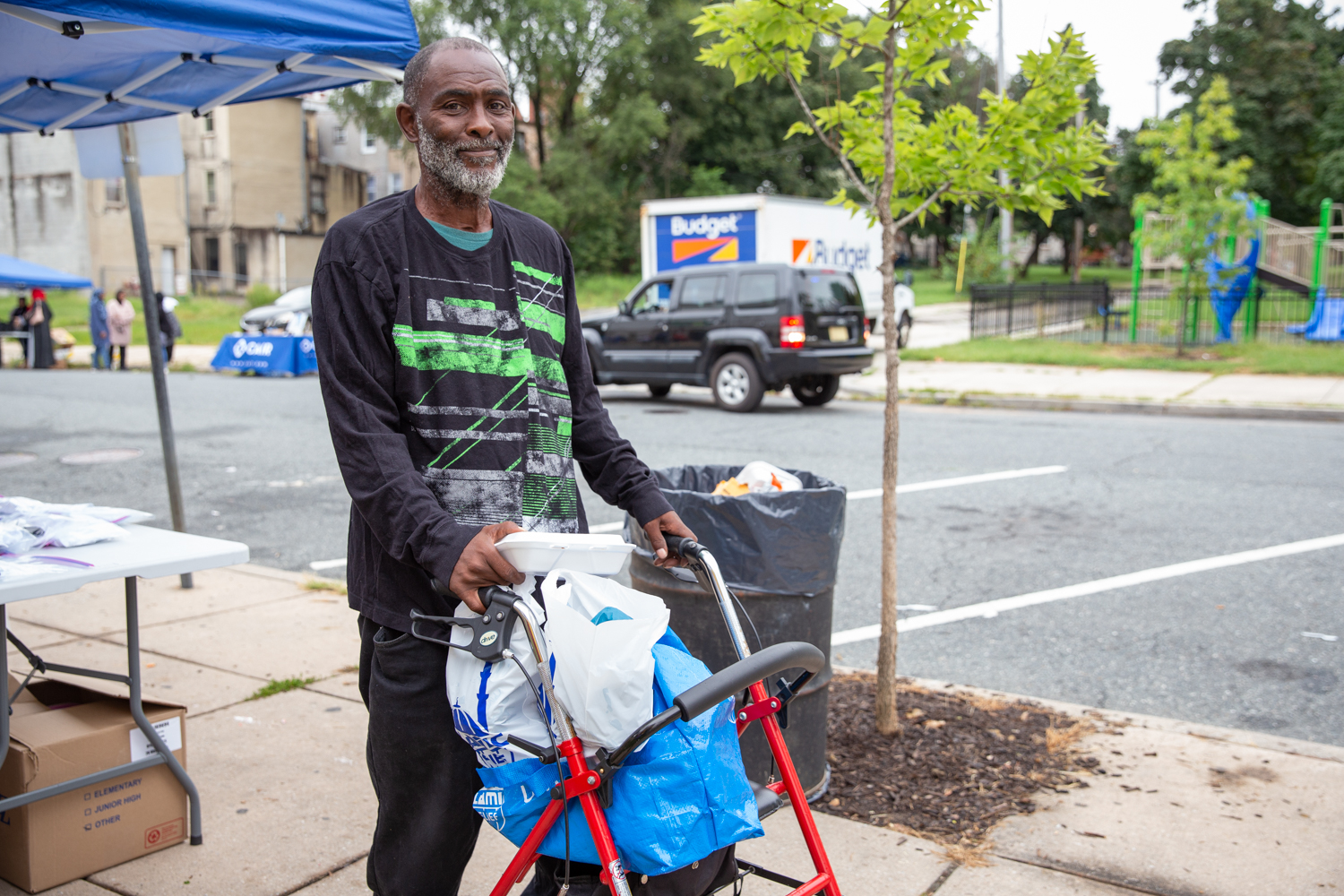Climate Change, Conflict, and Catastrophic Famine: How Global Events Are Affecting Families Across the Horn of Africa and How the IR Community is Helping
By Yusuf Azimi
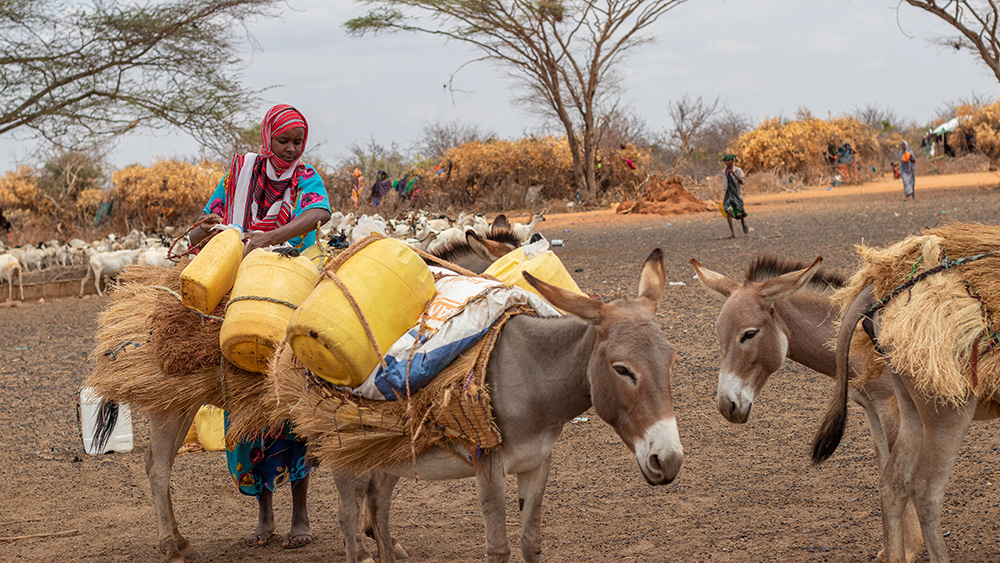
The Horn of Africa is once again on the verge of a catastrophic famine, with fears that the worst drought the region has faced in decades could be set to continue. Which, according to the World Food Program (WFP), has up to 20 million people in Ethiopia, Somalia, Kenya, Sudan, and South Sudan at risk of famine.
Recent rainfall has been sparse and all signs point to a below average rainy season once again in the region, which would mean that for the past four years an adequate rainy season has not materialized, plunging the region into its worst drought in decades. With COVID-19 and the war in Ukraine already driving up food prices, and this latest drought caused by climate change, millions of people are at risk of further food insecurity, exacerbating an already dire situation at every turn. The IPC Scale (Integrated Food Security Phase Classification) already places the majority of the region at a crisis level–meaning that the food security situation in the region is critically in the balance.
The impact of the war in Ukraine is a particular cause for concern since bread is one of the key staples in the African region. Ninety percent of wheat that the region consumes comes from either Russia (72%) or Ukraine (18%), and the war is driving the prices higher and higher. For example, the price of food baskets has risen by 66% in Ethiopia and 36% in Somalia.
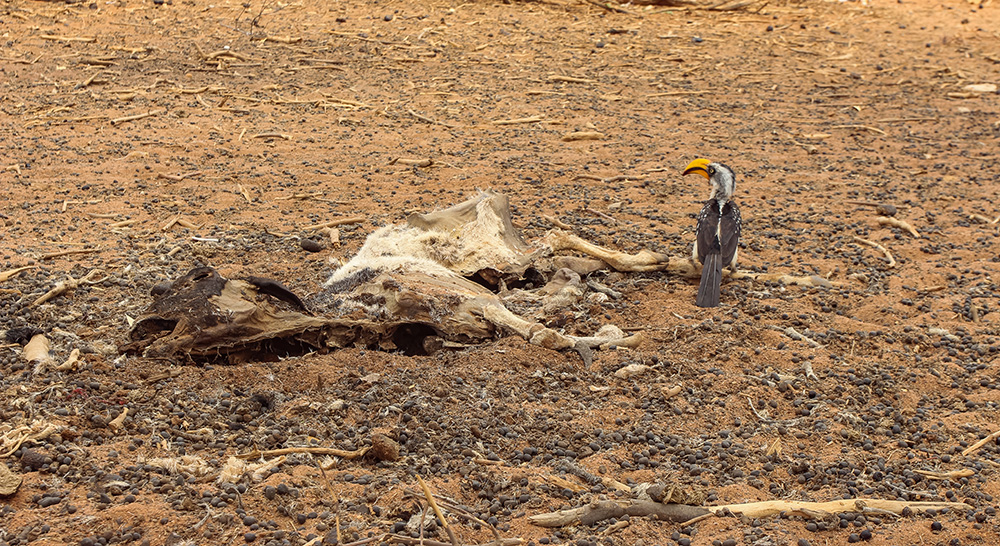
According to UNICEF, over the last two months, the number of households across the Horn of Africa without reliable access to clean and safe water has almost doubled from 5.6 million to 10.5 million. In addition, the number of people classified as food insecure has risen from 9 million to 16 million.
The struggle to find food and water, coupled with dwindling numbers of livestock, has forced hundreds of thousands of people across the region to migrate in order to survive. In Somalia, the International Organization of Migration (IOM), has estimated that almost 1 million people will be displaced due to the drought.
Further escalating the situation are the ongoing conflicts across the region that are destabilizing the local economy, forcing people to displace and creating severe accessibility issues for humanitarian organizations on the ground. That is in addition to the increasing risk of violence against those migrating in search of food and water.
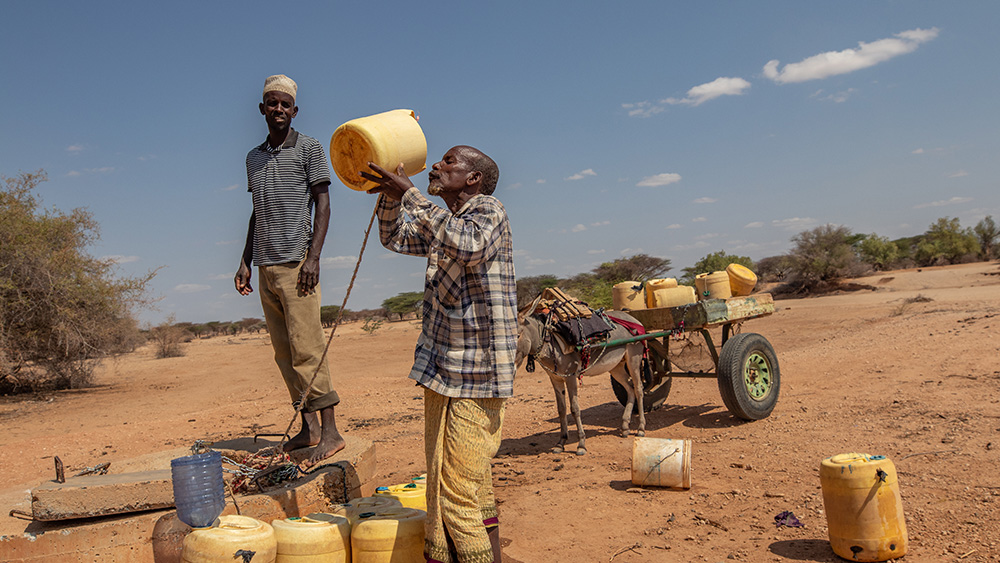
In order to provide relief, urgent action is needed to save lives. During the droughts in 2016 and 2017, a concentrated aid effort helped divert a potential famine. Aid agencies are hoping for a similar outcome, rather than the devastating events of 2011, where 265,000 lives were lost as a result of famine.
Islamic Relief is on the ground right now, responding to the crisis, and has pledged $10 million in an effort to help those who have been most affected and are especially vulnerable to the impending drought. We aim to do this over the next 12-18 months through a humanitarian response designed to help affected households recover and rebuild through food security, livelihood nutrition, health, water, hygiene, and sanitation activities. Here are some specific examples of the interventions the Islamic Relief community is putting into place to help our sisters and brothers across the Horn of Africa:
In Ethiopia, in the Oromia and Somali states, IR is allocating $3 million to help benefit over 130,000 people. We’re aiming to do this by focusing on three main areas: food security and livelihoods, health and nutrition, and water, sanitation, and hygiene.
- Food Security and Livelihoods: Financial support to households in need as well as animal health services.
- Health and Nutrition: Food aid to over 30,000 children under five years old, as well as to pregnant and breastfeeding women, and supporting the training of malnutrition screening for 90 workers.
- Water, Sanitation, and Hygiene: Delivery of Water for drought-affected pastoral communities, intended to reach over 130,000 people; supply and installation of emergency water distribution tanks; distribution of emergency water, sanitation, and hygiene items; and rehabilitation and upgrading of failed water schemes.
In Kenya, within the Wajir and Mandera regions, IR is allocating $2.2 million, focusing on food security and livelihoods as well as water, sanitation, and hygiene.
- Food Security and Livelihoods: Financial assistance, livestock vaccination exercises, livestock feeds, drought resistant fodder seeds, and early maturing agricultural inputs.
- Water, Sanitation and Hygiene: Delivery of water; rehabilitation of 10 strategic boreholes; construction of two new boreholes; desilting and fencing of dams for rainwater harvesting; and drilling, equipping, solarization, and piping of boreholes.
In Somalia, in the Somaliland and Puntland regions, IR is allocating $3 million focusing on food security and livelihoods in addition to water, sanitation, and hygiene.
- Food Security and Livelihoods: Financial assistance for three to four months to improve food security for over 2,000 households; additional financial assistance for four months for 700 displaced families in camps; support for 300 displaced families to start businesses; tractor for farming and distribution of seeds and agricultural tools to 20 farmer groups; construction of a post-harvesting storage room with solar-powered AC unit to prevent the common issue of post-harvest losses of perishable vegetables and fruits; and provision of livestock treatment and vaccinations to support 1,000 households as well as distribution of hay and fodder feed.
- Water, Sanitation and Hygiene: Emergency water trucking to support over 3,000 households; rehabilitation of water infrastructures, including one strategic borehole and seven shallow wells for 48,000 individuals; piping extensions to improve access of water for 3,000 households; construction of 70 emergency latrines for 3,500 individuals and COVID-19 awareness sessions.
In South Sudan, IR is allocating almost $1 million to provide relief to over 30,000 people. In order to achieve this, efforts will be focused on four areas: food security and livelihoods, health and nutrition, water, sanitation and hygiene, and protection.
- Food Security and Livelihoods: Distribution of food packs; provision of seeds and tool kits consisting of cereal seeds, legume seeds, vegetable seeds, hand tools, sealable waterproof storage drums to improve safe storage of seeds to limit postharvest losses; training of 500 smallholder farmers on small plot horticulture, including kitchen gardens and post-harvest management.
- Water, Sanitation and Hygiene: Construction of five new boreholes and the rehabilitation of two boreholes; construction of 90 latrine blocks; and hygiene awareness promotion sessions to target 3,339 people.
- Health and Nutrition: 12,00 individuals reached through curative consultations; 3,000 children under 5-years-old will receive their routine immunizations and vaccinations; and 1,200 women will receive antenatal and post-natal care services, including tetanus toxoid vaccines.
- Protection: Awareness sessions delivered on women empowerment, protection, and gender based violence topics.
In Sudan, IRUSA is allocating almost $1 million for food security and livelihoods, water, sanitation, and hygiene, and disaster risk reduction.
- Food Security and Livelihoods: Distribution of “short-maturing” and drought-tolerant crop seeds to 1,465 households; distribution of agricultural tool kits to 1,465 households; training of 90 farmers on agricultural technology transfer and extension services in the project area; financial provisions to 1,275 households; distribution of 1,599 goats or sheep (three per household); training of 100 participants on animal feeding and feed processing; training 20 community animal health workers on livestock husbandry; distribution of 20 start kits comprising livestock drugs and vaccines to community animal health workers; provision of two animal feed-making machines for livestock fodder production; training for households on clay-stove making for income generation; support for 75 men and women through village savings and loan association establishment; and training 25 community leaders, local officials, and community-based organizations on project management, implementation, and sustainability.
- Water, Sanitation and Hygiene: Rehabilitation of three water points, including enhancing them with solar energy in three villages; rehabilitation of two water harvesting basins for rainfall water collection to be used by human and livestock consumption as well as for irrigation purposes; and distribution of 300 digging tools for rehabilitation of small catchment basins, six water purification kits, COVID-19 PPE supply kits (masks, sanitizers, and disinfectant soap), and COVID-19 awareness sessions.
- Disaster Risk Reduction: Distribution of 3,000 forestry seedlings to combat desertification and windstorms; three climate change awareness raising sessions.
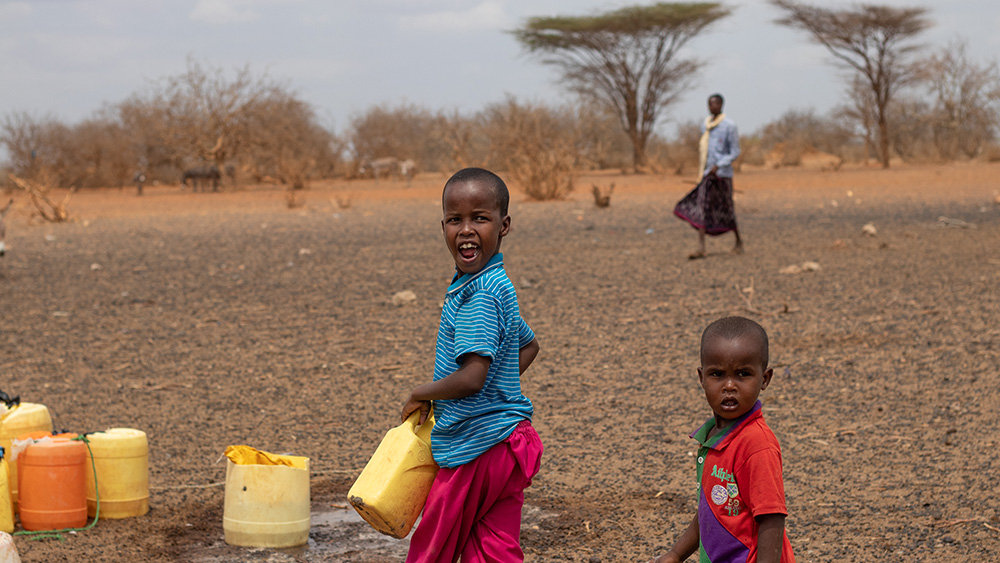
Our first priority is to help save the lives of the most-affected and vulnerable groups and communities across the region. While delivering the humanitarian response, IR will strictly follow the Core Humanitarian Standards and Sphere Standards in order to deliver appropriate interventions. Secondly, our response is aimed at helping affected households recover and rebuild their means of livelihoods.
The scale of this crisis cannot be understated, and the potential devastation cannot be underestimated. That’s why it’s crucial that we act now, as history has shown that action today saves lives. If you would like to support IRUSA in our efforts to provide crucial assistance to those affected by the drought in the Horn of Africa, please visit irusa.org/africa.


